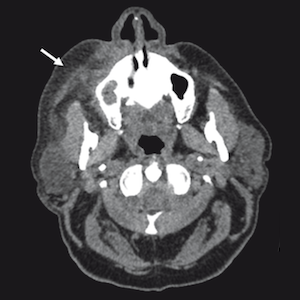Case Reports
Vol. 2 No. 4 (2023)
Allopurinol-induced acquired von Willebrand syndrome

Publisher's note
All claims expressed in this article are solely those of the authors and do not necessarily represent those of their affiliated organizations, or those of the publisher, the editors and the reviewers. Any product that may be evaluated in this article or claim that may be made by its manufacturer is not guaranteed or endorsed by the publisher.
All claims expressed in this article are solely those of the authors and do not necessarily represent those of their affiliated organizations, or those of the publisher, the editors and the reviewers. Any product that may be evaluated in this article or claim that may be made by its manufacturer is not guaranteed or endorsed by the publisher.
Received: 20 June 2023
Accepted: 6 October 2023
Accepted: 6 October 2023
1885
Views
253
Downloads
Similar Articles
- PO03 | Enlarged platelets with reduced GP IB/IX can indicate disorders other than Bernard-Soulier syndrome , Bleeding, Thrombosis and Vascular Biology: Vol. 4 No. s1 (2025)
- PO91 | Disseminated intravascular coagulation with deep vein thrombosis in a frail patient: an extreme manifestation triggered by sepsis during SGLT2i therapy , Bleeding, Thrombosis and Vascular Biology: Vol. 4 No. s1 (2025)
- PO69 | Whole blood thrombin generation hypercoagulable profile in a patient with hemolytic crisis due to paroxysmal nocturnal hemoglobinuria: a case report , Bleeding, Thrombosis and Vascular Biology: Vol. 4 No. s1 (2025)
- PO59 | Efficacy and safety of different anticoagulant treatment regimens for isolated internal jugular vein thrombosis: a case series , Bleeding, Thrombosis and Vascular Biology: Vol. 4 No. s1 (2025)
- PO76 | Thrombosis associated with midline in autoimmune patient: a case report on the use of apixaban in a real-world setting , Bleeding, Thrombosis and Vascular Biology: Vol. 4 No. s1 (2025)
- PO38 | Rates of hemorrhagic events and hemodialysis circuit thrombosis in patients with end-stage renal disease on hemodialytic treatment receiving a factor-XI inhibitor: a systematic review and meta-analysis , Bleeding, Thrombosis and Vascular Biology: Vol. 4 No. s1 (2025)
- PO30 | Acquired angioedema associated with B-non Hodgkin lymphoma: a case report , Bleeding, Thrombosis and Vascular Biology: Vol. 4 No. s1 (2025)
- Giovanni de Gaetano, Da la scheggia rotta usciva insieme parole e sangue: an unusual case of bleeding and the metaphor of a clinical trial , Bleeding, Thrombosis and Vascular Biology: Vol. 3 No. 3 (2024)
- CO44 | First interlaboratory validation workshop of immunofluorescence microscopy on the peripheral blood smear for recognizing patients with inherited platelet disorders , Bleeding, Thrombosis and Vascular Biology: Vol. 4 No. s1 (2025)
- PO81 | Direct oral anticoagulants in atypical site vein thrombosis: a single centre experience focused on cancer patients , Bleeding, Thrombosis and Vascular Biology: Vol. 4 No. s1 (2025)
You may also start an advanced similarity search for this article.










